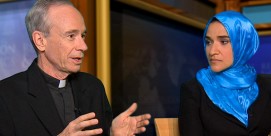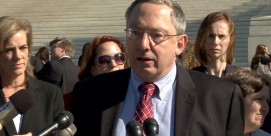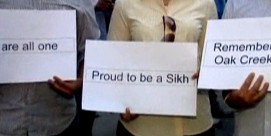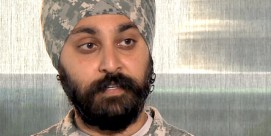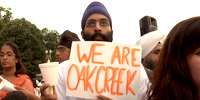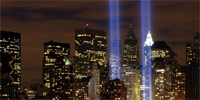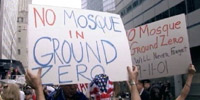Tag: religious discrimination
“If we look back in our families, we find that we’re all immigrants. Whoever they were, they were the stranger, they were the people who were looked upon as foreigners. For us to turn over and suddenly be prejudiced against some newcomers, this is denying our own heritage.” More
“This case is about Christians aggressively imposing themselves upon their fellow citizens with the power of government,” says plaintiff lawyer Douglas Laycock. But defense attorney Tom Hungar warned that the case could lead to “government regulating the theological content of prayers, prescribing what is orthodox and what is not in religion.” More
When Sikhs began to restore their gurdwara in Oak Creek, “I saw the spirit of chardi kala, everlasting hope and optimism, in the community,” recalls activist Valarie Kaur. More
“You can not have a peace without justice. So we learned to defend not only ourselves, we were taught to defend the defenseless,” says U.S. Army officer Major Kamal Kalsi. More
“The spirit of resilience is deep in the heart of the Sikh faith,” says Valarie Kaur, a Sikh woman from Auburn Seminary in New York. “Sikhs have died for their turbans, died for their faith, but drawn from their faith to rise up again and not be afraid.” More
“We don’t treat soldiers that are atheists as atheists. We treat them as soldiers,” says Colonel Stephen Sicinski, base commander at Fort Bragg. More
Ten years after 9/11, the American public is “like an individual suffering from post-traumatic stress disorder,” writes ethicist Robin Lovin. “We are unable to return to the old world we thought we understood, but we cannot tolerate the noise and uncertainty of the new world, either.” More
College and university students recall 9/11 and reflect on how it affected their spiritual lives. More
The past decade may have brought Americans new interfaith understanding, but it has also expanded interfaith tensions. More
“This decade has been a time of encountering and engaging Islam in a new way that also causes Christians to think about their own identities and understand God and God’s love for people beyond the Christian world,” says Notre Dame history professor Scott Appleby. More

